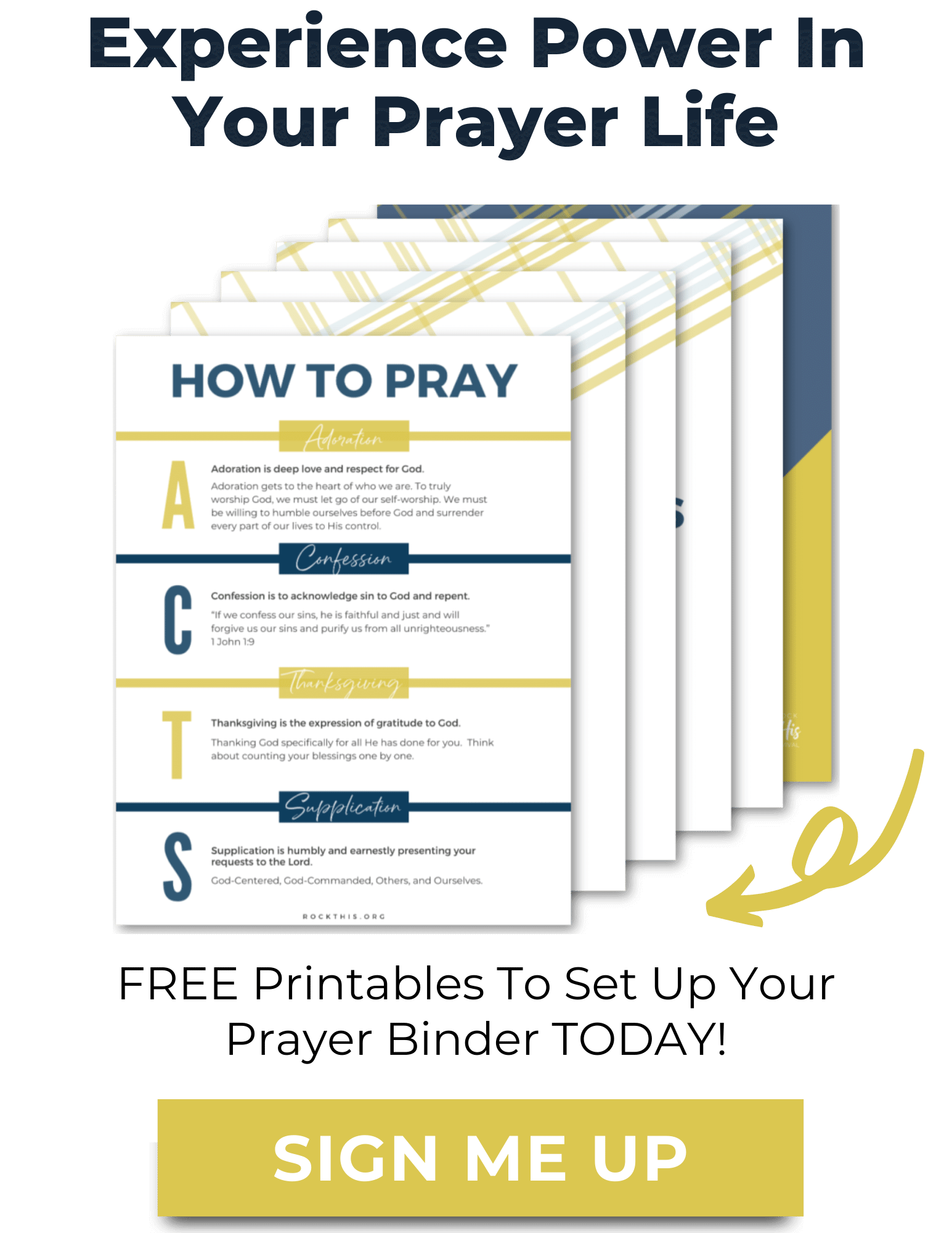Bible Context 101- Your Comprehensive Guide to Better Understanding Scripture
(This post contains affiliate links. If you purchase through our link, at no additional cost to you, we will make millions and millions of dollars. Just kidding. We'll make a small commission to help keep the site running. And, we appreciate it!)
If you’ve been around our blog before, you probably already know I have a passion for reading the Bible. There’s nothing more transformative than being in God’s Word.
That certainly wasn’t always the case.
For the longest time, I would read and not understand a single thing I had just read. To say I was frustrated was an understatement.
Maybe that’s where you are today.
You want to read the Bible and grow in your faith, but you’re overwhelmed with life, and the last thing you want to do is add another thing to your to-do list.
Especially something that leaves you feeling dumb.
The Bible is simple, but it isn’t easy.
Good news, you can learn.
As my mama so wisely says, “We have to do the work that only we can do, and then God will do what only He can do. And make sure you don’t confuse the two.”
One day as I was watching tv, I saw a commercial that stopped me in my tracks. It illustrated something God has been revealing to me about the Bible.
So, what in the world did a State Farm commercial teach me about reading the Bible?
Give it a watch, and then we’ll chat.
Same words. Two different meanings.
What does that have to do with Bible reading?
Bible Context
When we read the Bible, we bring a lot of ourselves to the table.
Our experiences shape the way we think. When we read certain words, we assume we know their meaning.
Because the Bible was written in a different time with different cultural norms, it’s imperative we put the Scriptures in context.
Back to the commercial. Same words, but two entirely different meanings.
The same thing can happen when we read the Bible if we don’t set the verses into their proper context. Be sure to grab the free worksheet.
Let’s explore 4 Bible Context Essentials:
1. Where it fits (the sentences before and after the verse you’re studying)
If you only have time for one step when looking at context, this is the one!
Read the verses before and after the one you are studying. Many misunderstandings of what you’re reading can be curtailed by understanding what happened before and after.
2. Historical setting (what was going on during this time period)
Look for what was going on in the culture during the time period. If you have a study Bible, they usually have a section that can get you up to speed quickly.
Consider the author of the text as well as the intended audience.
If you don’t have a study Bible, head back to google and search for the verse along with historical context. (eg. Philippians 4:13 historical context)
3. Literal meaning (the words it uses)
Define any words that aren’t crystal clear. You can start with a regular dictionary and follow it up with a Bible dictionary.
I’m a huge fan of googling whatever word I'm looking for followed by in the Bible. (eg. Strengthen as used in the Bible.) I hope you’ll be as amazed as I was when I first started using this method.
4. Synthesis
This principle is two-fold.
First, you want to consider the verse you’re studying in light of the Bible as a whole.
If you’re a new Bible reader, no worries. This will come in time. Just know the Bible never contradicts itself.
The second part is cross-referencing.
Ah, the beauty of cross-references. You know those itty bitty, tiny letters and numbers in the margins of your Bible? Those are abbreviations of other verses in the Bible that support and directly relate to the verse you’re studying. One of the most amazing parts of the Bible is how it proves itself.
Putting It Into Practice
Want to do a verse together?
Let’s examine Philippians 4:13
"For I can do everything through Christ, who gives me strength."
I chose this verse because, before understanding context, I completely missed the meaning of this favorite verse.
Picture if you will, a high school girl at the Friday night football game yelling, “Can Do,” along with the rest of the stands in an effort to support our team. I just knew that through the power of Jesus our team would win. (Yes, I winced as I typed that last sentence.)
True story.
We got it wrong. Oh. So. Wrong.
Let’s walk through the context steps, so you can appreciate just how wrong we got it.
Before we start, let’s ask God to speak to us through His Word and our study sincerely.
Literal Meaning:
For this verse, let’s dive a bit deeper into the word strength.
Dictionary meaning: Moral power, firmness, or courage. (dictionary.com)
Biblical meaning: The Greek word katei means “power, strength, might.”
As Christians, we are to be strong in the mighty power of God. This means that our strength is not our own; it is not human or fleshly. Our strength is not of the world, but our strength is found in Christ—in our having a vibrant, dynamic relationship with Him. (gotquestions.org)
Historical Setting:
Author: Paul
Original Audience: The Christians at Philippi
Date Written: Approximate A.D. 61
Setting: Paul wrote this letter when he was imprisoned in Rome. He established the church at Philippi during his second missionary journey. They sent a gift to him while he was in prison, and the book of Philippians is the result of him writing a thank you note back to them. (Life Application Study Bible)
Where it Fits:
My study Bible uses subtitles to break up the chapters, and verse 10 is a natural place to start reading to put verse 14 into context.
10 How I praise the Lord that you are concerned about me again. I know you have always been concerned for me, but you didn’t have the chance to help me. 11 Not that I was ever in need, for I have learned how to be content with whatever I have. 12 I know how to live on almost nothing or with everything. I have learned the secret of living in every situation, whether it is with a full stomach or empty, with plenty or little. 13 For I can do everything through Christ, who gives me strength. 14 Even so, you have done well to share with me in my present difficulty. (NLT)
After reading verses 10-12, we glean immense insight into verse 13.
Paul was writing about resting in God's strength. He wasn't striving or doing or achieving.
He was teaching us that regardless of our circumstances, good or bad, we need to press into Jesus' strength.
Synthesis:
Cross References: 2 Corinthians 12:9-10
Each time he said, “My grace is all you need. My power works best in weakness.” So now I am glad to boast about my weaknesses, so that the power of Christ can work through me. 10 That’s why I take pleasure in my weaknesses, and in the insults, hardships, persecutions, and troubles that I suffer for Christ. For when I am weak, then I am strong.
After putting Philippians 4:13 in its proper context, do you see how horribly I got it wrong as a teen?
The real question now is what do you think it means? What has God revealed to you through your study?
New understanding of the Scripture:
That’s between you and the Lord.
Don't forget to download the free printable worksheet.
I'd love to hear from you! What other ways do you put Scripture into context?











Abby Rike has a heart for helping Christian women grow in their faith. She believes there is no better way to strengthen your faith than to get in the Word of God. Her passion is to equip women to read the Bible for themselves and experience the transformation that comes from experiencing God. She has created a Bible study method that meets you where you are in your faith journey and helps you get where you want to go.